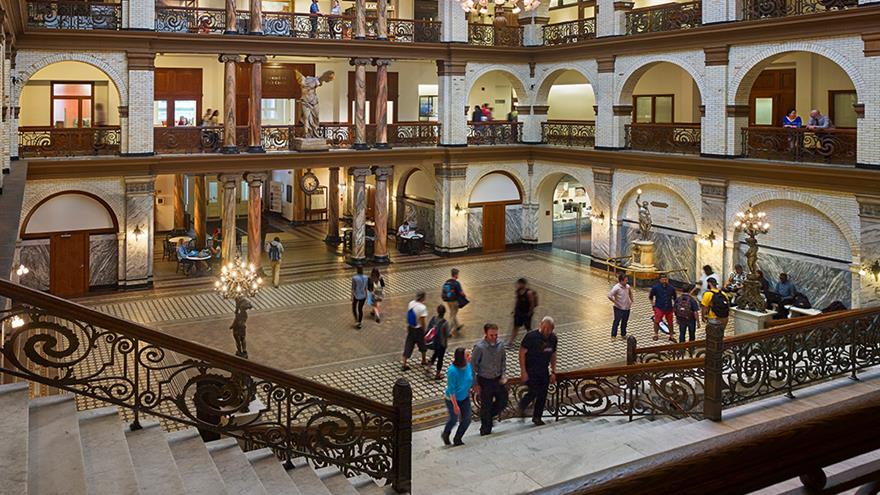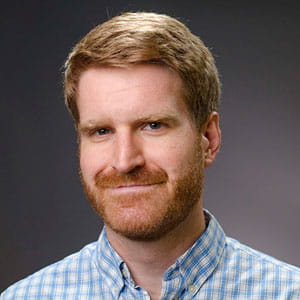Freshmen spend summer doing research — and get paid for it

- Heard Around Campus — February 2026
- Early-Career Hiring Remains Active but Increasingly Selective, According to Drexel’s 2026 College Hiring Outlook
- Drexel University's Recent Academic Activity: Sponsored Opportunities and New Partnerships From Fall 2025
- Faculty Highlights: Recent Awards and Grants from Fall 2025

Rebecca Olsho spent much of her summer on the Greek island of Crete, assisting with academic research, earning a bit of money and ultimately writing a 104-page report. She even got a lead on a possible job offer.
But she won’t be able to take that job for at least several years. That’s because Olsho, while she was doing all that, was still just a freshman in college.
Olsho, now a sophomore at Drexel, was conducting international research barely a year out of high school as part of the University’s STAR Scholars program. A program of the Office of Undergraduate Research in the Pennoni Honors College, STAR allows more than 150 Drexel students to take part in real scholarly research—and get paid for it—during the summer term following their freshman year.
And a small but growing number of those students do that research overseas, as Olsho did this past summer.
Whether they’re working in Philadelphia or abroad, students in the program are getting an opportunity not available to many college freshmen, said Suzanne Rocheleau, an associate dean of the Honors College.
“It really is a distinguishing program for Drexel,” said Rocheleau, who oversees the program as director of the Office of Undergraduate Research.
The program, first conceived as a recruiting tool, is offered to some high-ability highschool students when they first apply to Drexel. But the bulk of the participants are admitted after an application process during their freshman year at the University.
STAR Scholars—the acronym stands for “Students Tackling Advanced Research”—take part in research conducted by Drexel faculty during the summer term. It’s a good fit for freshmen from any school, college or major in the University, Rocheleau said, and it can involve other scholarly work or creative activities in addition to research. Students receive free housing and a $4,000 stipend for the summer.
But far more important, Rocheleau said, the experience gets their minds on the real world very early on in their college experience. That can be invaluable, she said—even if they decide that the discipline they’ve chosen isn’t the right fit.
“It becomes real,” Rocheleau said. “It’s not just theoretical anymore.”
In Olsho’s case, her experience only tightened her focus on her chosen field: international area studies, with a concentration on international business and economy.
With a trip already planned to Israel, Olsho arranged to use that visit plus some time in Greece for her study, “National Sovereignty and Energy Geo-Economics in the South-Eastern Mediterranean.” She interviewed officials about the impact of natural gas and oil reserves on the region, before coming back to Philadelphia for the final four weeks of the term.
Her primary mentor was Maria Hnaraki, an associate teaching professor and director of Greek Studies in the Department of Culture and Communication, part of the College of Arts and Sciences.
“It gave me a whole new insight into something I didn’t know much about,” Olsho said, “and I ended up basically becoming kind of an expert in the field.”
In fact, the mentor she worked with in Greece, doctoral student Theodore Katerinakis, said he might be able to help her land a job working with the European Commission in Brussels when she’s done with school.
And Olsho, who’s passionate about international travel, got to spend much of her summer seeing new parts of the world.
“It makes it more interesting to you,” Olsho said. “I think I learned so much more doing that than just sitting there in a classroom.”
Other students this summer tracked the migratory patterns of army ants in Costa Rica and studied new materials at a German institute. (More details on their experiences are posted on this blog.) Six of the 155 STAR Scholars did their research abroad, but Rocheleau said she hopes to at least double that number next summer.
At the end of each summer, the STAR Scholars showcase their research at an exhibition.
About half of STAR Scholars go on to graduate school, Rocheleau said. And since the program began in 2002, two STAR Scholars alumni have become faculty members at Drexel: Kara Spiller in the School of Biomedical Engineering, Science and Health Systems and Alex Moseson in Mechanical Engineering and Mechanics in the College of Engineering.
Others have gone on to success in other areas. And, Rocheleau said, that’s the ultimate goal of the program.
“What we’re really trying to do,” she said, “is prepare them for life.”
In This Article
Drexel News is produced by
University Marketing and Communications.
